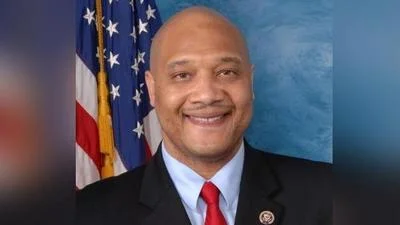Senator Todd Young, US Senator for Indiana | Official U.S. Senate headshot
Senator Todd Young, US Senator for Indiana | Official U.S. Senate headshot
This week, U.S. Senators Todd Young (R-Ind.), Ben Cardin (D-Md.), Jim Risch (R-Idaho), Jeff Merkley (D-Ore.), all members of the Senate Foreign Relations Committee, and Mitch McConnell (R-Ky.) sent a bipartisan letter to Secretary of State Antony Blinken and USAID Administrator Samantha Power. The letter urges them to develop a proactive policy on Burma in light of the rapidly evolving civil conflict in the country.
“As the risk rises of a prolonged stalemate in the conflict, resulting in a permanently fragmented state, it is imperative that the U.S. government has a comprehensive and forward-leaning strategy on Burma. We urgently need a revitalized approach, which will better support resistance forces within the country who are courageously standing up to the brutality of the military junta,” wrote the lawmakers.
“The United States has stood with the Burmese people for decades against this oppressive military regime, and we must not cede U.S. leadership at this critical inflection point but rather do everything in our power to support the hopes and aspirations of the people of Burma, from all of its diverse communities, for a democratic, peaceful, and prosperous future,” continued the lawmakers.
The full text of their letter is as follows:
Dear Secretary Blinken and Administrator Power,
We are writing to express our concerns regarding what appears to be a failure to meet the moment regarding the evolving situation in Burma. As the risk rises of a prolonged stalemate in the conflict, resulting in a permanently fragmented state, it is imperative that the U.S. government has a comprehensive and forward-leaning strategy on Burma. We urgently need a revitalized approach, which will better support resistance forces within the country who are courageously standing up to the brutality of the military junta.
The United States should reinvigorate its diplomacy to bring together and empower pro-democracy groups and ethnic organizations crucial to forming a future democratic government with an inclusive federalist framework in Burma. Our diplomatic efforts should involve close and continued engagement with traditional constituencies such as the National League for Democracy (NLD) and National Unity Government (NUG), as well as ethnic organizations holding considerable swaths of territory across the country.
While China manipulates all sides of the conflict to advance its strategic interests in the region, recent developments in Burma open up possibilities for creative multilateral diplomacy with ASEAN and key partners including Thailand, Japan, and India. Multilateral support for various resistance groups will be crucial for charting a stable democratic political future in Burma. Additionally, multilateral assistance with reconstruction efforts will be essential following the conflict.
At this time, it is also important that armed actors protect civilian populations and allow unhindered humanitarian access while promoting accountability for those who commit abuses.
The United States should revisit its sanctions regime on Burma and explore new accountability actions targeting sectors like aviation fuel to maintain pressure on the junta. We applaud efforts with Singapore constraining weapon flows to Myanmar's regime and hope similar efforts can extend financial constraints into other countries such as Thailand and Vietnam.
Concerns remain over insufficient implementation by State Department’s USAID regarding non-lethal assistance provisions under Congress' authority through The Burma Act. Resistance groups face relentless attacks from junta forces; providing non-lethal items like medical equipment or body armor would offer protection against these attacks. Slow implementation hinders impactful timely support despite congressional authority granted otherwise—this policy decision warrants reconsideration.
Congress reaffirms willingness towards strategic coordination aiding Burmese citizens avoiding protracted conflicts influencing broader regions preventing entrenched PRC influence working alongside allies supporting democratic peaceful futures ensuring robust U.S leadership remains pivotal during these times.
Thank you for your attention towards this urgent matter.






 Alerts Sign-up
Alerts Sign-up